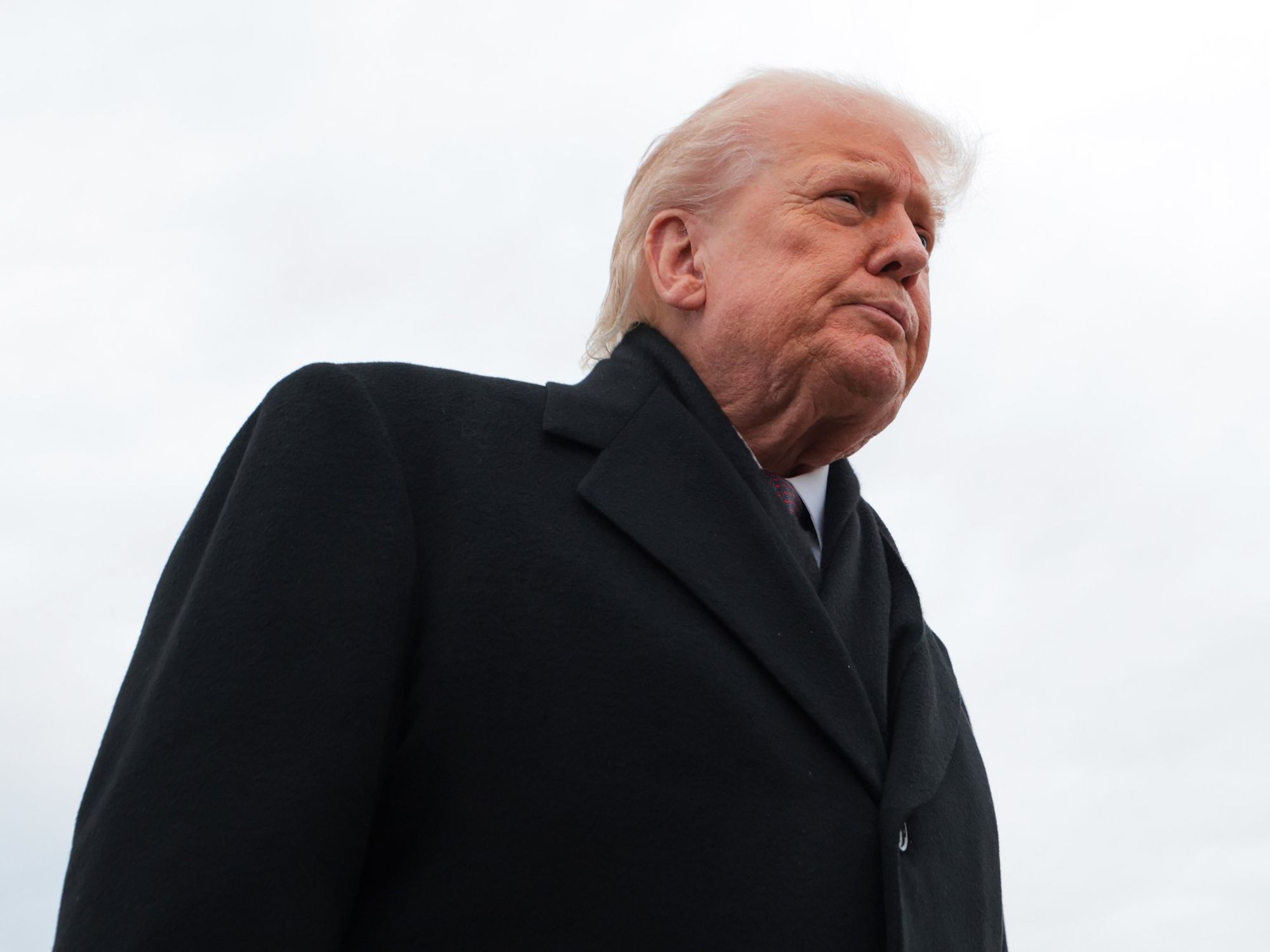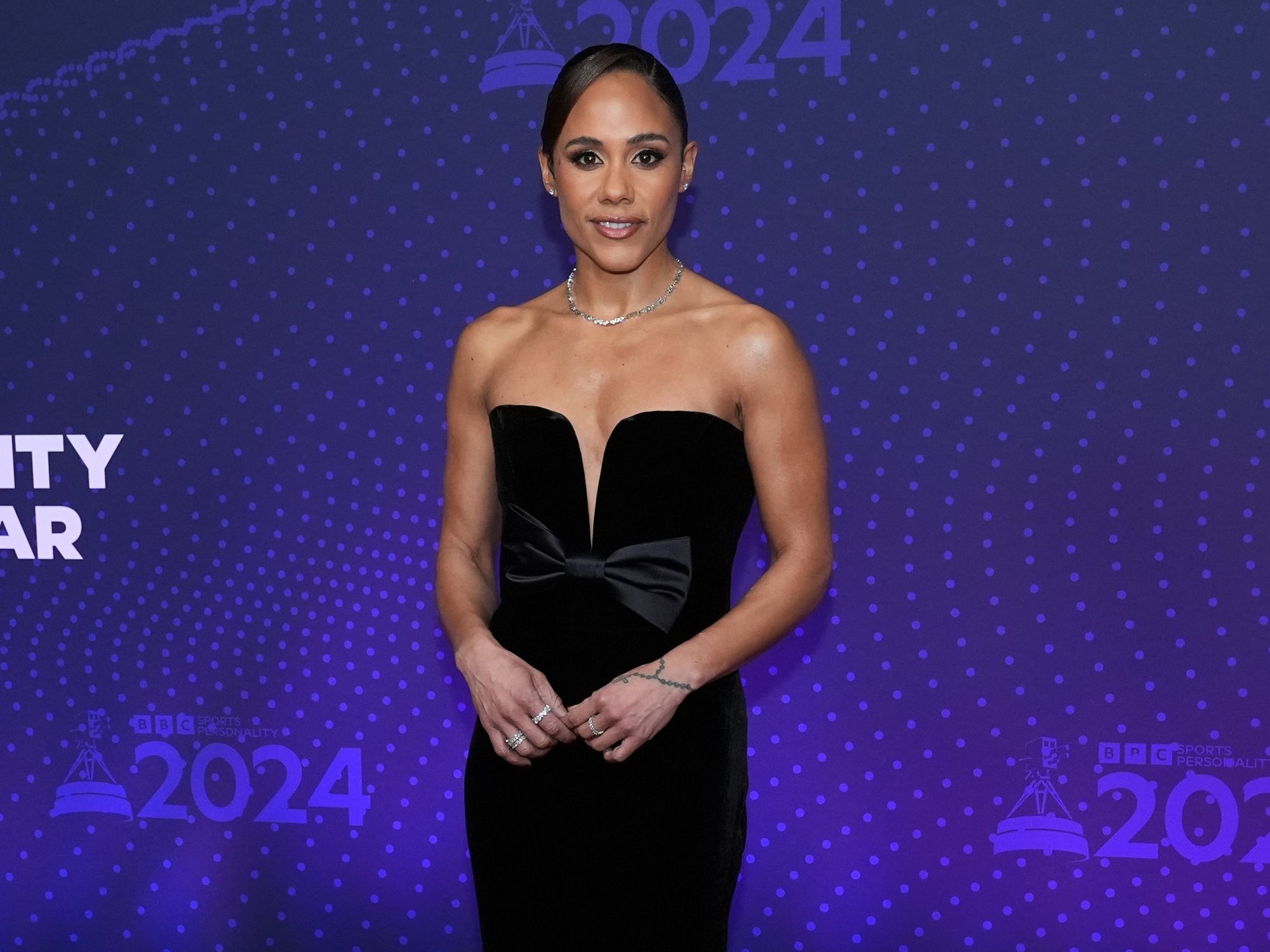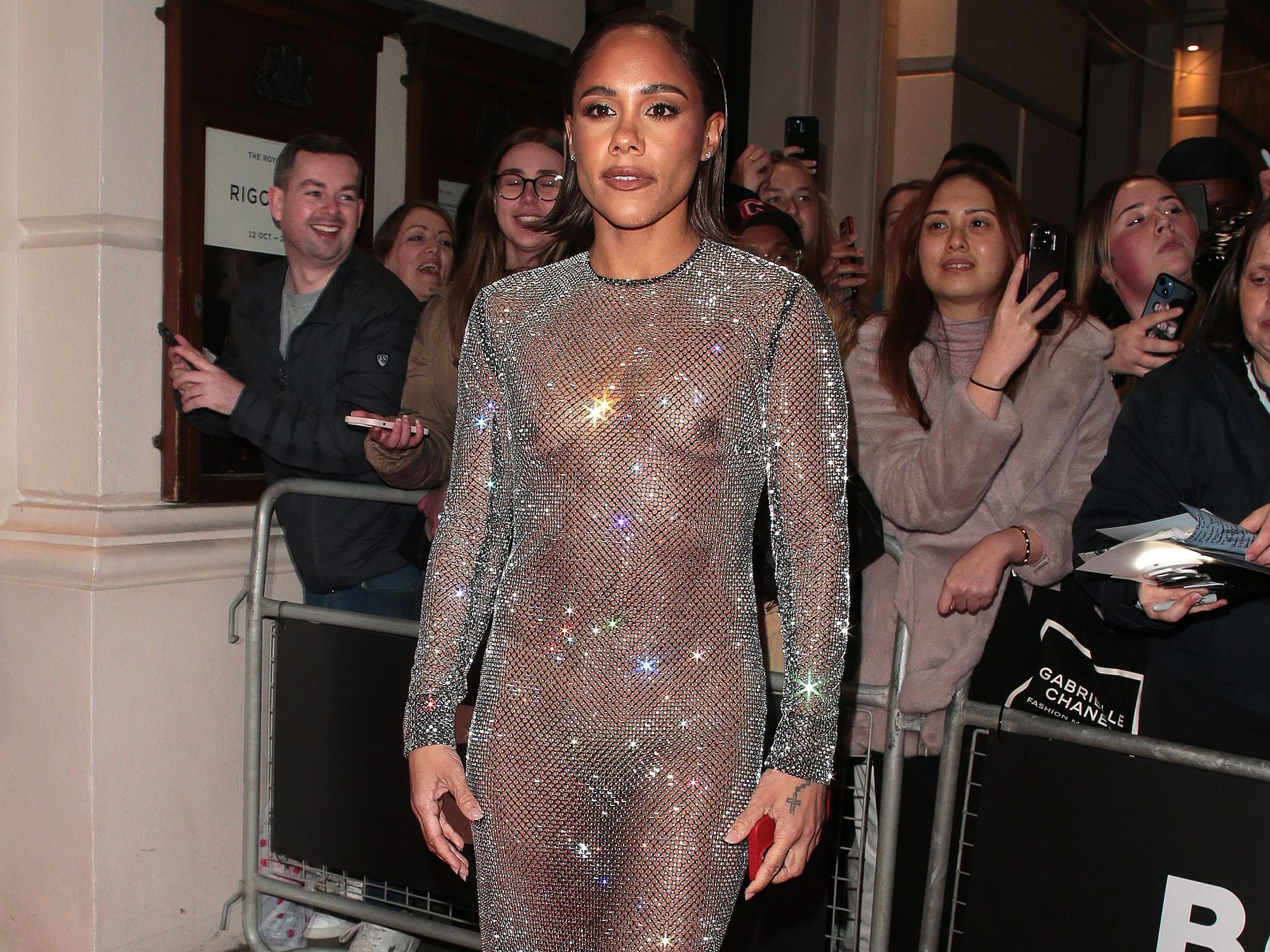President Joe Biden signs TikTok ban into law, as social media app responds 'we aren't going anywhere'
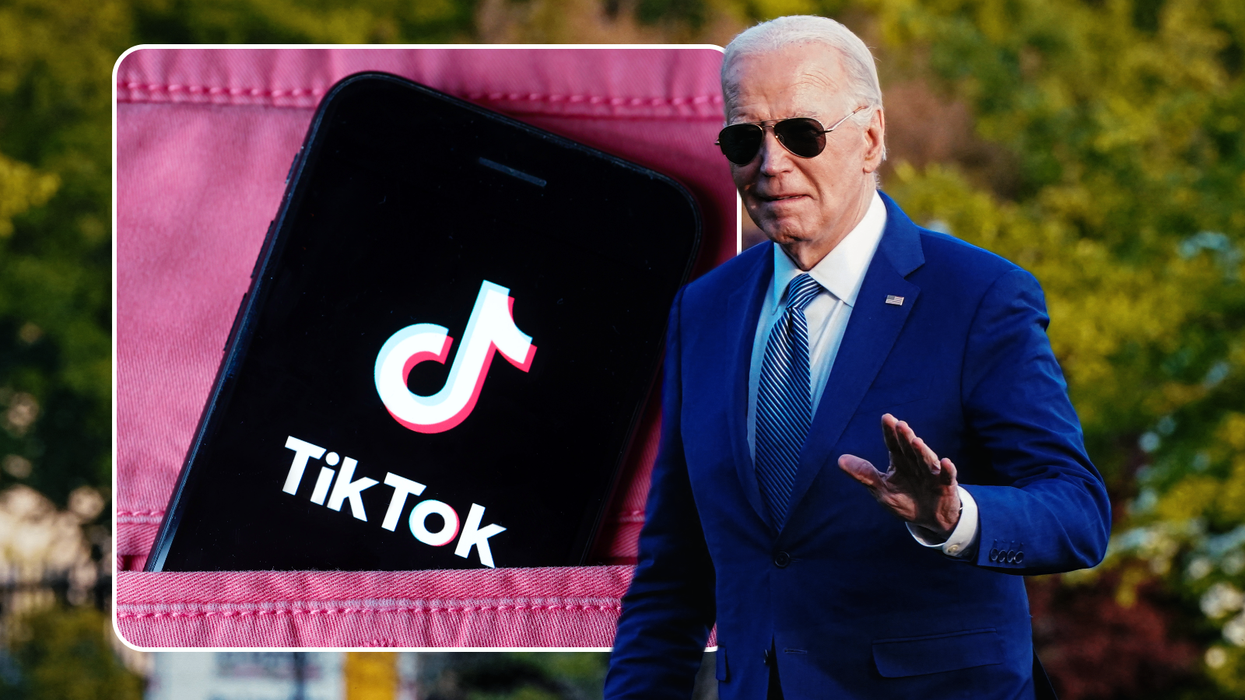
President Joe Biden has signed the controversial law, that could see TikTok banned for 170 million US citizens within nine months if Chinese parent company ByteDance fails to find a new owner
|REUTERS | GETTY IMAGES | GBN

"Rest assured — we aren't going anywhere," TikTok CEO Shou Zi Chew reassured users
- US President Joe Biden signed the hard-fought bill into law on April 24
- It was tied to another bill to send $61 billion in aid to Ukraine
- US Senate voted in favour of the legislation by a wide margin
- It follows 352 to 65 vote in US House of Representatives last month
- TikTok parent firm ByteDance will be forced to divest its video-sharing app
- The legislation allows nine moths for ByteDance to find a new owner
- If the Beijing-based company fails, TikTok will be blocked in the USA
- US officials will compel Apple, Google and others to stop carrying the app
- TikTok has confirmed plans to challenge the legislation in court
- Over 150 million Americans currently use social media app TikTok
Don't Miss
Most Read
Latest
Over 170 million Americans could be left without access to TikTok in a matter of months.
US President Joe Biden this afternoon signed a bill that will ban TikTok in the United States if its owner, the Chinese tech firm ByteDance, fails to divest the popular short video app over the next nine months to a year.
The hard-fought bill was tied to separate aid legislation that'll deliver $61 billion in aid to Ukraine, $26 billion for Israel, as well as $1 billion in humanitarian assistance to Gaza and $8 billion to counter China's military might.
Spurred by widespread concern amongst US lawmakers that China could access data or surveil American citizens who use the social media app, the bill was passed by the House of Representatives last week.
"For years we've allowed the Chinese Communist party to control one of the most popular apps in America that was dangerously shortsighted," said Senator Marco Rubio, the top Republican on the Intelligence Committee. "A new law is going to require its Chinese owner to sell the app. This is a good move for America."
TikTok says it never stores US user information on servers in China.
The four-year battle over the future of TikTok, which is used by 170 million people in the United States, is just one front in a war over the internet and technology between Washington and Beijing.
Last week, Apple revealed Beijing had ordered it to remove Meta's WhatsApp and Threads services from its App Store in China over Chinese national security concerns.
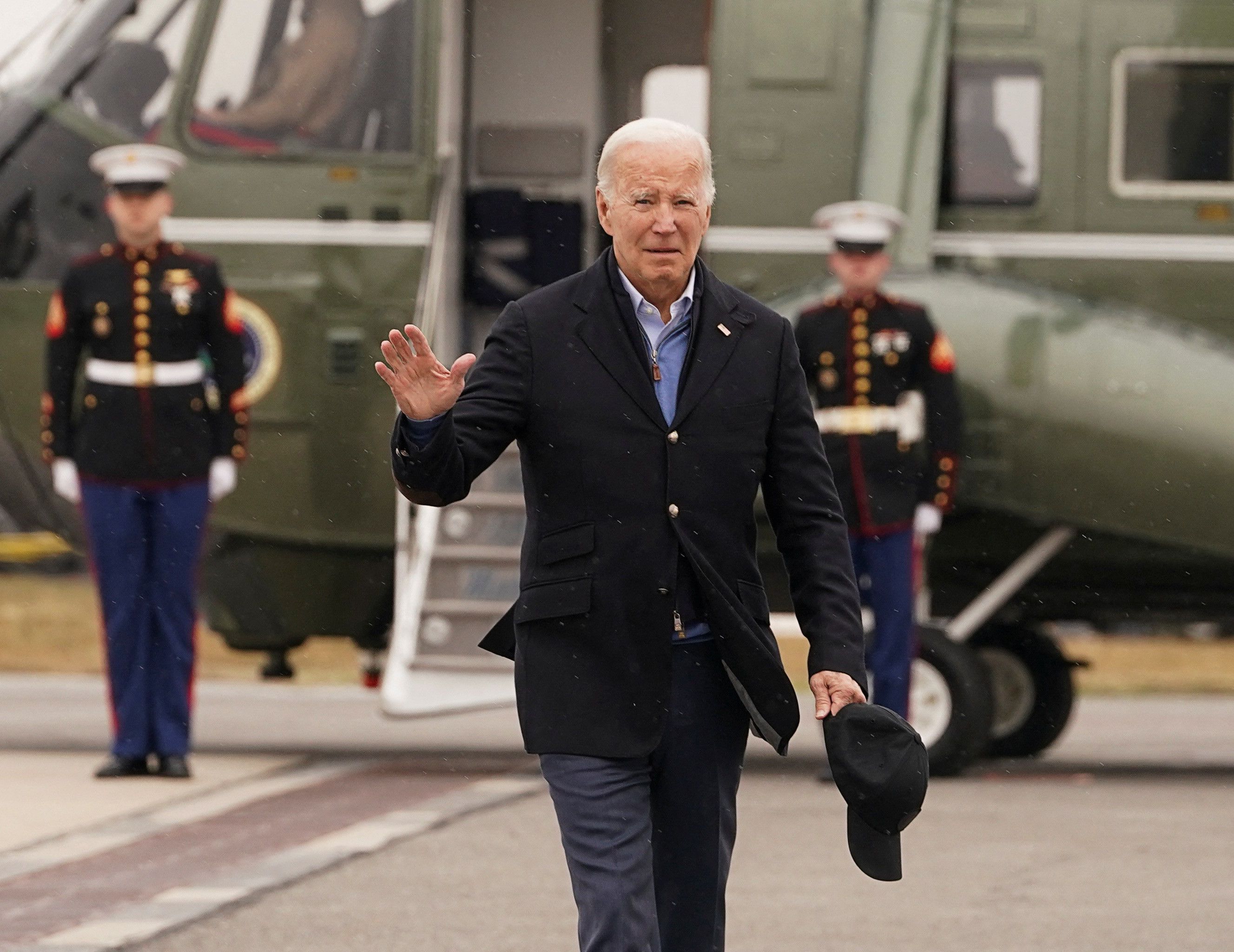
US President Joe Biden has already confirmed that he's willing to sign the TikTok ban into law if it passes both Houses — a feat that it's now achieved
|REUTERS
TikTok has rushed to reassure concerned users that it plans to challenge the legislation. TikTok CEO Shou Zi Chew said the social network expects to win a legal challenge to block legislation signed into law by President Joe Biden.
"Rest assured — we aren't going anywhere," he said in a video posted on TikTok moments after President Biden signed the bill that gives China-based ByteDance just 270 days to divest Tiktok's US assets. "The facts and the Constitution are on our side and we expect to prevail again."
A spokesperson for TikTok said: "This process was secret and the bill was jammed through for one reason: It’s a ban. We are hopeful that the Senate will consider the facts, listen to their constituents, and realize the impact on the economy, seven million small businesses, and the 170 million Americans who use our service."
Legal experts said opponents of the law could argue it infringes free speech by preventing users from expressing themselves and businesses from using the app to promote products. TikTok has already beaten a similar attempt to ban its use in Montana, although the US State is appealing that ruling.
TikTok is not alone — dozens of other companies, such as Meta-owned Facebook collect, store and share users' data, but US lawmakers government has never treated that activity as a national security threat or enacted data protections.
The Electronic Frontier Foundation's David Greene said that if the United States were really concerned about China and data privacy, it would push legislation that applies to all social media companies, not just TikTok. US lawmakers will need to convince a court the measure is not a limitation on speech but a regulation of a commercial transaction and a way to protect national security.

Employees walk into the ByteDance headquarters, which is located in the Chinese capital city Beijing
|REUTERS
Not only that, but the legislation does leave a small loophole for TikTok — the company could swerve a ban in the United States if it splits from its Chinese parent ByteDance and becomes a standalone company.
The controversial legislation would classify TikTok as a national security risk for American citizens, allowing the US government to block the popular social media service from app stores and web browsers for every citizen. Congressmen Mike Gallagher, a Republican, and Raja Krishnamoorthi, a Democrat, introduced the Protecting Americans from Foreign Adversary Controlled Applications Act last week.
ByteDance is a Chinese technology company with its headquarters in Beijing.
The law accuses the firm, which was started back in 2012 but didn't launch TikTok until September 2017, of being backed by the ruling Chinese Communist Party.
Like many Chinese corporations, ByteDance has an internal Chinese Communist Party (CCP) committee, which sees Vice President Zhang Fuping serving as ByteDance's CCP Committee Secretary.
“This is my message to TikTok: break up with the Chinese Communist Party or lose access to your American users. America’s foremost adversary has no business controlling a dominant media platform in the United States,” Congressmen Mike Gallagher said in a press release.
Raja Krishnamoorthi says the idea behind the draft legislation is to “protect American social media users […] from the digital surveillance and influence operations of regimes that could weaponise their personal data against them."
TikTok has blasted the proposed legislation, stating that it hurts free speech and the 5 million businesses that rely on the social media app every day. It has urged its users to call their representatives in Congress to voice opposition against the bill.
According to The New York Times, some Congressional phone lines have been overwhelmed due to the vast number of impassioned TiKTok users trying to voice their concerns. Some of the callers appeared to be teenagers, the article claims.
The American Civil Liberties Union said banning or requiring divestiture of TikTok would "set an alarming global precedent for excessive government control over social media platforms. ...If the United States now bans a foreign-owned platform, that will invite copycat measures by other countries."
TikTok, which says it has not shared and would not share user data with the Chinese government, did not immediately comment but has told employees it would quickly go to court to try to block the legislation.
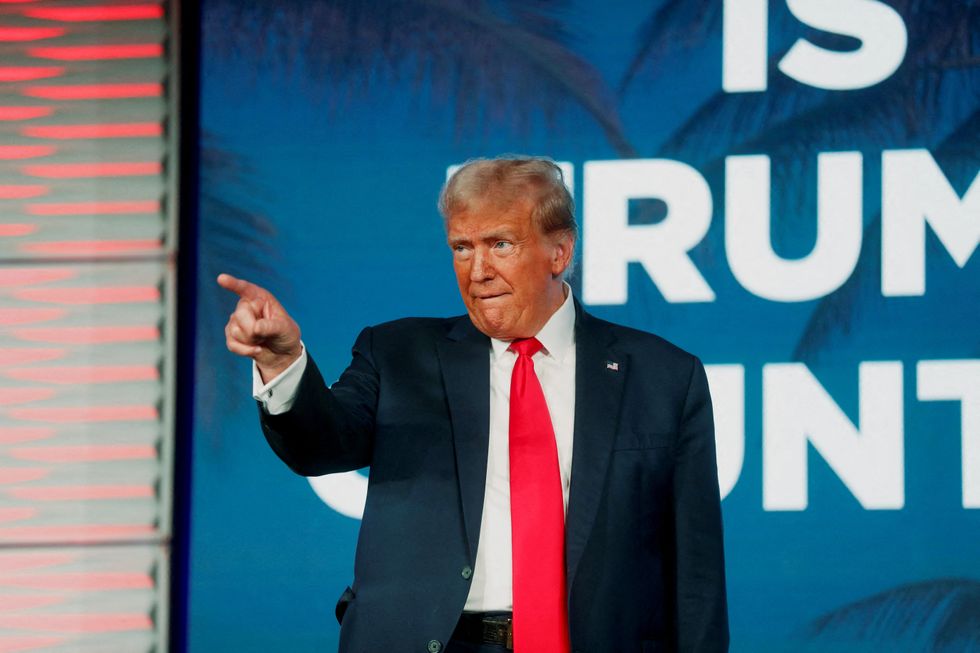
In 2020, then-President Donald Trump was blocked by the courts in his bid to block TikTok and Chinese-owned WeChat in the United States
|REUTERS
"This is the beginning, not the end of this long process," TikTok told staff on Saturday in an email seen by Reuters. The Senate voted 79 to 18 in favour of the bill, which was attached to a measure to provide $95 billion in mostly military aid for Ukraine, Israel and Taiwan. The TikTok divestment directive won fast-track approval after being introduced just weeks ago.
Democratic Senator Ed Markey said it would be hard, if not impossible, for ByteDance to divest by early 2025, adding that a sale would be one of the most complicated and expensive transactions in history, requiring months if not years of due diligence.
"We should be very clear about the likely outcome of this law. It's really just a TikTok ban," he said. "Censorship is not who we are as a people. We should not downplay or deny this trade-off."
The bill could also be an issue in the November presidential campaign, with Republican presidential candidate Trump urging young voters to consider a possible TikTok ban.
TikTok has long had a strained relationship with the US government. Donald Trump attempted to ban the app in the United States back in 2020, while Montana tried to impose a state-level ban in 2023.
Courts stepped-in and blocked both of those attempts, stating it violated the First Amendment. President Trump has since reversed his stance and now opposes a ban on TikTok.
ByteDance has previously confirmed that it has over 150 million users in the United States of America. In a press release published last year, it confirmed: "TikTok is a special place where Americans come together to learn, be entertained, grow their business, as they continue to create, discover and connect with a broader global community.
"Today, we're celebrating our mission as we continue to inspire creativity and bring joy across the United States for more than 150 million people. We're honoured to be a home for our immensely diverse community in the United States, made up of nearly half the country's population, including book lovers, foodies, families, emerging artists and so much more.
LATEST DEVELOPMENTS
- Apple releases pivotal iPhone update to comply with EU law
- Freeview users will unlock a new channel at the same time as Sky TV viewers
- WhatsApp will block screenshots in certain parts of its app with next update
- Windows 10 users facing new charges from Microsoft get lifeline from Google
"This milestone would not have been possible without the hard work and unwavering commitment of almost 7,000 TikTok employees in the US, as well as our incredible community in the country and around the world."
The draft Protecting Americans from Foreign Adversary Controlled Applications Act could not only be used to block TikTok from web browsers and app stores for every US citizen. It could be used to block any social media apps run by foreign bodies that US lawmakers determine “pose a national security threat”.
This could pave the way for other applications to face the same threat as ByteDance — sell the asset to another company or face a full ban in one of the biggest markets on the planet.






